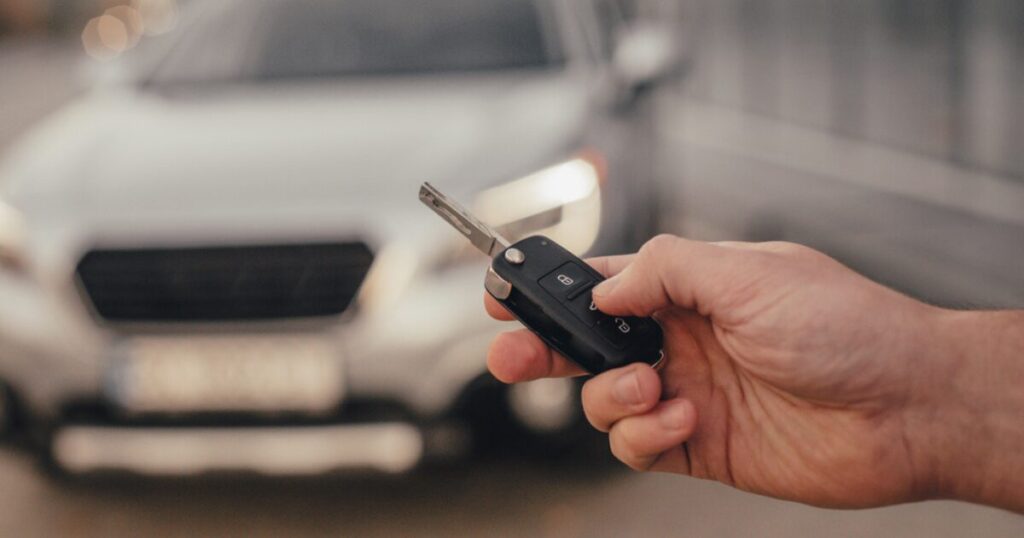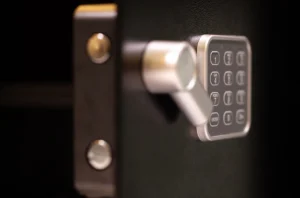In today’s automotive world, car security and convenience have evolved significantly. Two common terms that often confuse vehicle owners are key fobs and transponder keys. While both serve the essential purpose of accessing and securing vehicles, they operate differently and provide unique benefits. Understanding the differences between these two technologies can help you make better decisions regarding your car keys, replacements, or upgrades.
In this article, we’ll explore what a key fob is, what a transponder key is, their differences, pros and cons, and tips for maintaining them.
What is a Key Fob?
A key fob is a small, electronic device that allows vehicle owners to access, lock, unlock, and sometimes start their cars without using a traditional key. Modern key fobs often come with additional features such as remote start, panic alarms, and trunk release.
How Key Fobs Work?
Key fobs operate via radio frequency (RF) signals. When you press a button on the fob, it sends a signal to the car’s receiver, which performs the requested action—locking doors, opening the trunk, or starting the engine in push-button start systems.
Some advanced key fobs use proximity sensors, meaning you can unlock or start the car simply by having the fob in your pocket or bag. This feature adds both convenience and a layer of security.
Advantages of a Key Fob
Key fobs are highly convenient, providing hands-free access to your vehicle. They often come with safety features, including remote alarms, and can integrate with smartphone apps for additional control.
What is a Transponder Key?
A transponder key is a traditional car key embedded with a small microchip, known as a transponder. Unlike a basic mechanical key, a transponder key communicates with your vehicle’s ignition system to authorize engine start.
How Transponder Keys Work?
The transponder chip contains a unique identification code programmed specifically for your car. When you insert the key into the ignition, the car’s immobilizer reads the code. If the code matches the one stored in the vehicle’s computer, the engine starts. Otherwise, the car will remain immobilized, preventing theft.
This technology has become standard in most modern vehicles since the early 2000s as it significantly reduces the risk of car theft.
Advantages of a Transponder Key
Transponder keys offer enhanced security because the car will not start without the correct electronic code. Unlike key fobs, which focus on convenience, transponder keys prioritize theft prevention.
Key Fob vs. Transponder Key: Main Differences
Understanding the differences between a key fob and a transponder key requires looking at several aspects: technology, functionality, security, and convenience.
Functionality
The primary difference lies in their functions. A key fob is mainly a remote control for your vehicle, offering convenience features like remote locking and starting. A transponder key is primarily a security device that ensures only authorized keys can start the vehicle.
Security
While both provide security, the methods differ. A key fob relies on encrypted RF signals, which can sometimes be hacked using relay attacks. On the other hand, a transponder key uses a coded microchip that communicates with the car’s immobilizer system, making it harder for thieves to bypass.
Physical Design
Transponder keys often look like traditional car keys but have a small chip embedded inside. Key fobs, however, are typically larger electronic devices with buttons for multiple features. Some vehicles combine both technologies, embedding a transponder chip inside a key fob.
Cost and Replacement
Key fobs are generally more expensive to replace than transponder keys due to their advanced electronics and multi-functionality. Additionally, programming a new key fob often requires specialized equipment or dealer services, whereas transponder keys can sometimes be programmed with simpler tools.
Compatibility with Vehicles
Transponder keys have been used in cars for decades and are compatible with a wide range of vehicles. Key fobs, however, are more common in newer vehicles with push-button start systems and advanced electronic features.
Also Read: What to Do If Your Car Key Is Stuck in the Ignition?
When Key Fobs Include Transponder Chips?
Many modern cars combine the features of both key fobs and transponder keys. In such systems, the key fob not only unlocks doors and starts the car remotely but also contains a transponder chip for engine authorization.
How do Combined Systems Work?
When you approach your car with a key fob, the car detects the fob’s proximity via RF signals. Simultaneously, the car communicates with the embedded transponder chip to ensure it is authorized to start the engine. This dual-layer system enhances both convenience and security.
Benefits of Combined Systems
These combined systems are ideal for drivers seeking maximum convenience without compromising vehicle security. They provide hands-free access, remote start features, and robust theft prevention.
Signs Your Key Fob or Transponder Key Needs Replacement
At Payless Locksmith, we advise replacing faulty keys as soon as problems appear. Signs include:
- Remote lock/unlock buttons not functioning.
- Engine not starting with the transponder key.
- Physical damage to the key or fob.
- Reduced range or unresponsive key fob buttons.
Delaying replacement could lead to inconvenient lockouts or security issues.
Key Fob and Transponder Key Maintenance Tips
Proper care ensures a longer lifespan and better functionality:
- Avoid dropping your keys or fobs to prevent internal damage.
- Replace key fob batteries every 1–2 years.
- Keep transponder keys away from magnetic fields and moisture.
- Store spare keys safely in a dry location.
Frequently Asked Questions (FAQs)
Can a transponder key work without a key fob?
Yes, a transponder key can work independently, provided it is programmed correctly. Many vehicles allow engine start and door unlocking with just the transponder key, although convenience features may not be available.
Are key fobs more prone to hacking than transponder keys?
Key fobs use radio signals that can be intercepted in rare cases using relay attacks. Transponder keys are generally more secure due to their coded microchips, which communicate directly with the car’s immobilizer.
How much does it cost to replace a key fob or transponder key?
The cost varies by vehicle make and model. Key fobs are typically more expensive, ranging from $150 to $400, including programming. Transponder keys are usually less costly, often between $50 and $200.
Can I program a new key fob or transponder key myself?
Some transponder keys and simple key fobs can be programmed by the car owner using instructions in the vehicle’s manual. However, advanced key fobs or modern vehicles often require professional programming at a dealership or certified locksmith.
Key Takeaways
Understanding the difference between a key fob and a transponder key is essential for vehicle owners. While both serve as security tools, their primary functions differ. Key fobs prioritize convenience with remote access and additional features, whereas transponder keys focus on preventing unauthorized engine starts.
Modern vehicles often combine both technologies, providing the best of both worlds: security and convenience. Regular maintenance and timely replacement of damaged or worn-out keys are crucial for preventing inconveniences and enhancing vehicle safety.
For anyone looking to upgrade, replace, or troubleshoot their car keys, knowing these differences can save time, money, and unnecessary frustration.
Conclusion
Key fobs and transponder keys each play a vital role in modern car security and convenience. By understanding their functions, advantages, and limitations, you can make informed decisions about key replacement, programming, or upgrades. Whether you prioritize hands-free access or advanced theft prevention, knowing the difference ensures your vehicle remains secure and easily accessible.
For replacement, repair, or programming of key fobs and transponder keys, Payless Locksmith provides professional, fast, and affordable solutions. Contact us today to restore your vehicle access and peace of mind.




